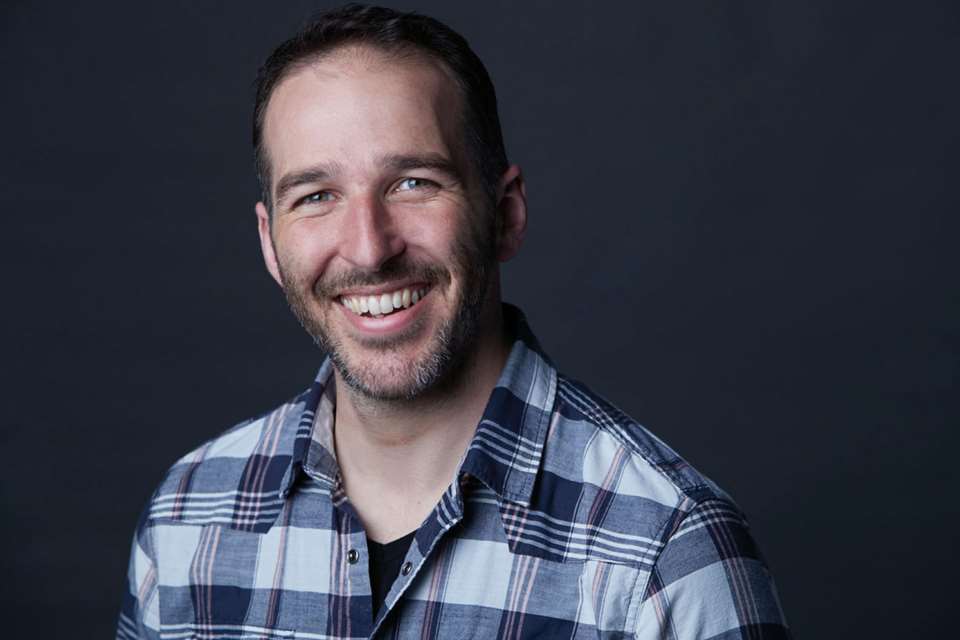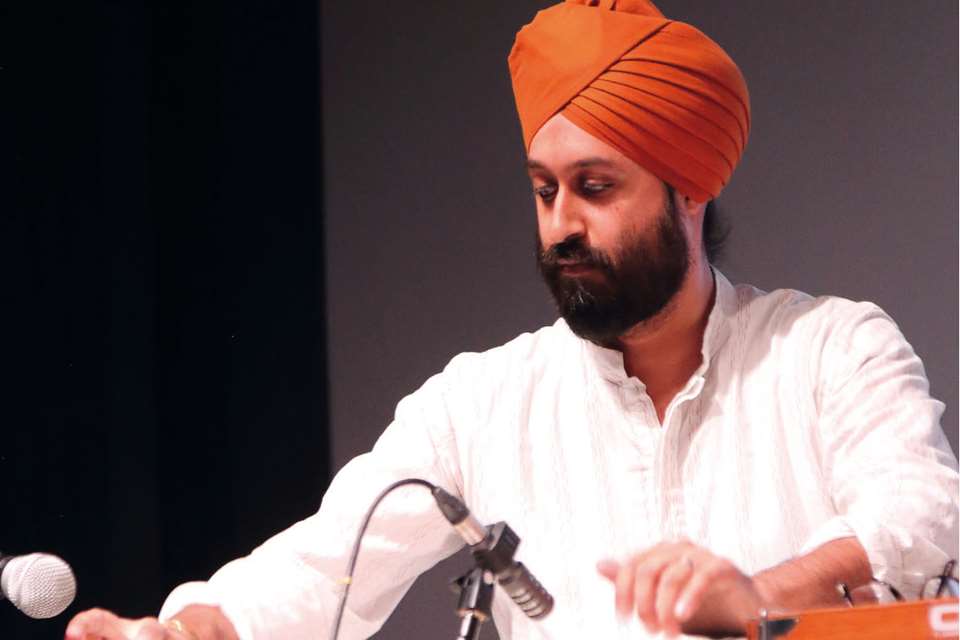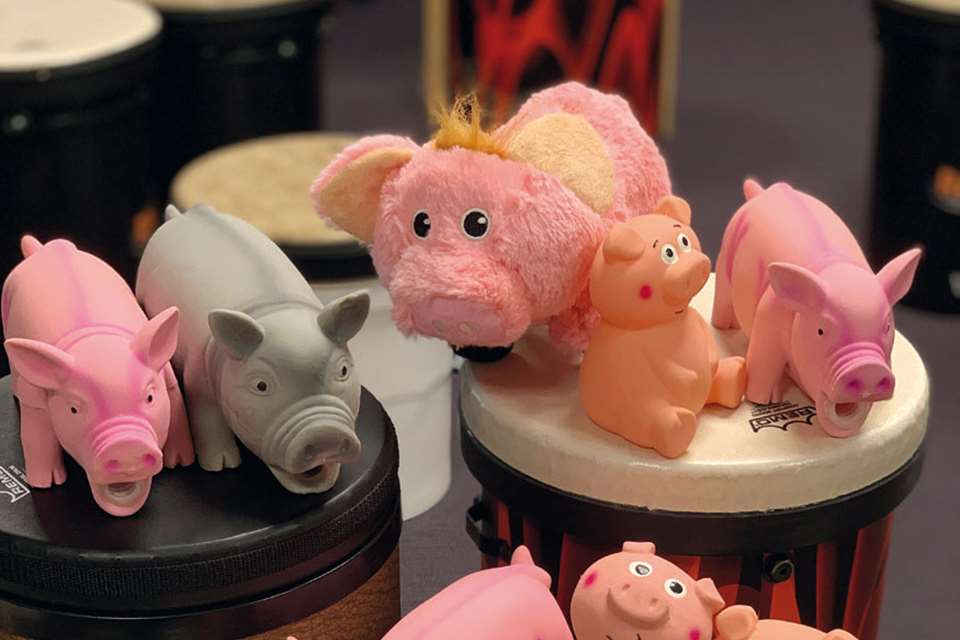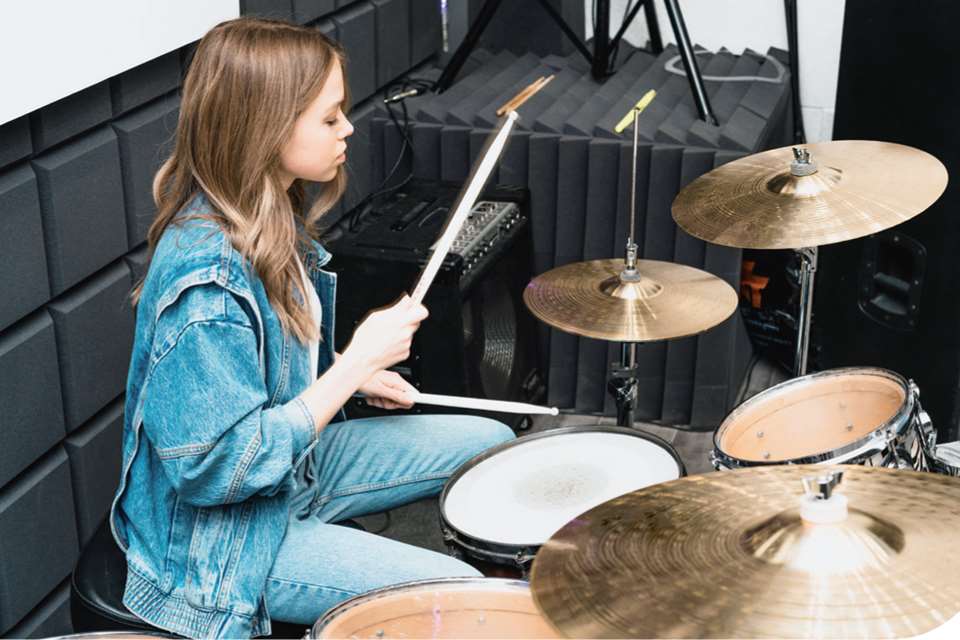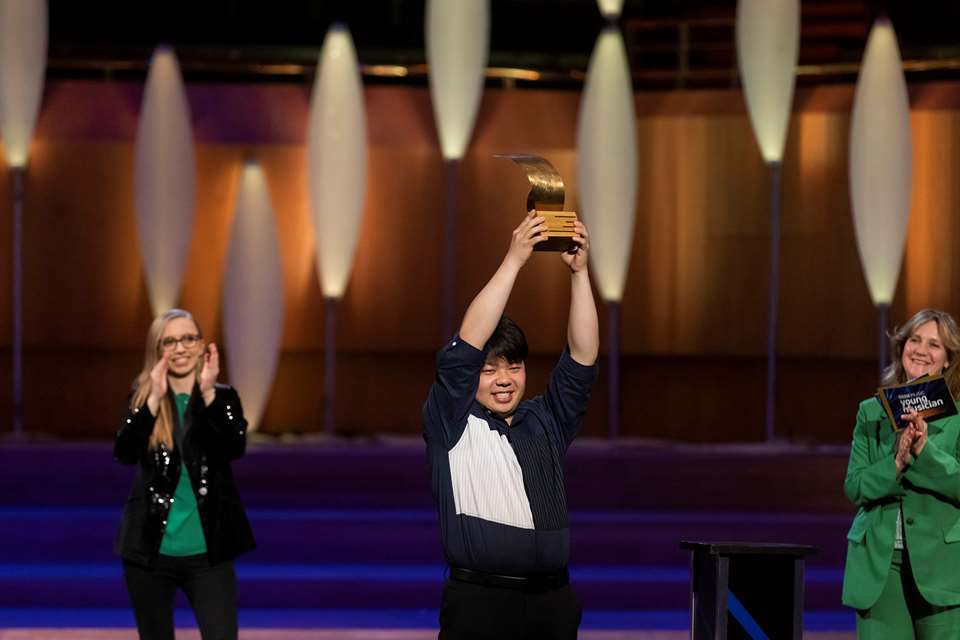Q&A: David Hext
Hattie Fisk
Saturday, July 1, 2023
David Hext is Percussion Section Leader with the world-famous Hallé Orchestra and a teacher at Chetham's School of Music. Here, he meets Hattie Fisk and discusses the dwindling talent pipeline and the importance of providing opportunities.
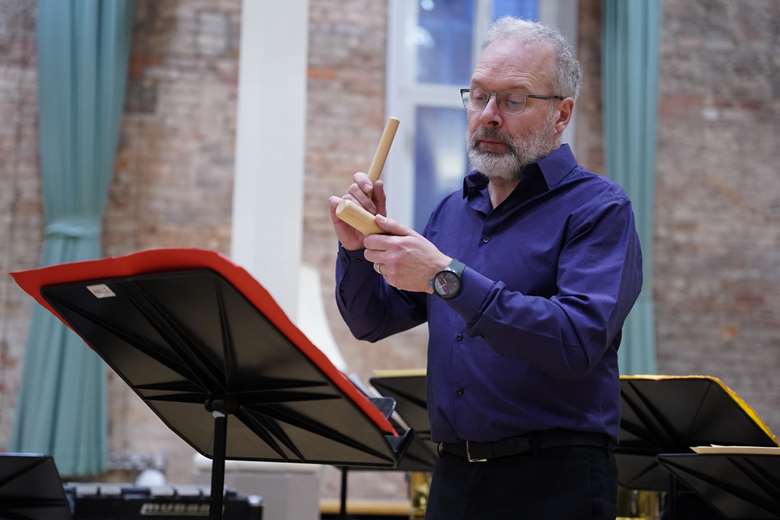
Alex Burns / The Hallé
HF: What initially made you take up percussion?
DH: I came from a family of keen brass players. In fact, my dad was a head of brass in Bedfordshire, my mum was a class teacher who played a brass instrument too, and my older brother plays the trombone. They tried to get me to play various brass instruments, but I kind of rebelled against it. I always wanted to play the drums – I was just fascinated by them. So eventually they gave up and let me do it, and as soon as I started learning I knew that was going to be the thing for me.
HF: What were your relationships with your music teachers like?
DH: Two specific teachers had a massive impact on me. The first, who is sadly no longer with us, was a military man named Fred Austin, who taught me all the basics of technique. He was so encouraging and positive, and he taught me about listening and playing along with other people, which I think is a really important element for young percussionists. The other educator that had an impact was a drum-kit teacher named Keith Brightman. I still keep in touch with him a lot, and he was a real inspiration. I remember, when I was younger, my jaw was on the ground when I saw him play, and I couldn't believe it when my dad arranged for me to have lessons with him! I have an enormous amount of gratitude towards the both of them for starting me off.
HF: What is it like to be the principal percussionist of the Hallé orchestra?
DH: My job is to make sure the balance is right in the section, and of course I have to make sure I can play the hardest part on top of that. I need to make sure that I know what all the six or so percussionists are doing on the stage, as well as concentrating on my part. It involves a lot of multitasking. A massive part of my job is organising what instruments we need. Some of the pieces require an enormous number of instruments, so I have to make sure we have all of them and that they are in the right place on the stage. I make sure we have the right number of players, and that we have the right instruments for them, as certain players have their strengths and weaknesses. We are really lucky in Manchester, at the Hallé: we have got a very good pool of extras that we can draw on and also a selection of players that I can really trust.
HF: How often do you have to swap things around?
DH: We do a great variety of programmes. One minute we can be performing a concert of Elgar's music or a Beethoven programme, and then the next day we will be playing hits from Star Wars as part of a family concert. We did a Bee Gees night a few days ago, and in the past we have done Elton John tracks and then, the next day, a symphony. It is an enormous variety of things that we do, which is great! I love it, but it certainly keeps us on our toes.
HF: As a music teacher yourself, what do you think is the most important thing to bring to a lesson?
DH: I think positivity is the most important thing. If you are giving any sort of criticism, it is important to deliver it in the most positive and encouraging way as possible to ensure your students will not be disheartened by what you are saying.
Also, try and manage the group you are teaching. At Cheatham's, where I teach, there is a big range of ages. It is often the case that younger students feel quite intimidated by the older ones, so I try and manage that so that the older students become more of an inspiration to younger ones and can collaborate. It can be hard, especially when we are talking about teenagers and all the different dynamics that happen there; but I think if you have the ability to influence someone's learning, and sometimes their career, it is a big responsibility but also a big privilege.
HF: How do you feel about the focus on drum-kits in younger age groups, compared to the wider uptake of percussion instruments?
DH: I think it is a problem, to be honest, and it does concern me. I know that in schools there is a whole raft of kids who want to play the drum-kit and that is great; I understand that it is a fun thing to play. But it does concern me that there is going to be so many drum-kit players and no orchestral players. I am trying to talk to teachers about this. We should look at a group of kit players and scout who has musical attributes that could transfer well to what some call ‘casual percussion’ (meaning all-round, less specialised). This transfer is more of a challenge than it ever was, because unfortunately funding for the larger ensembles (that we all used to take for granted when we were younger) is now drying up.
HF: Do you think that is what it boils down to – a fall in wider percussion uptake because of a lack of orchestral opportunities?
DH: Absolutely. It is a big problem, and it has been here for quite some time. I used to play in the Bedfordshire Youth Orchestra, an opportunity I didn't properly appreciate at the time. It was a fantastic orchestra, and we used to play the most demanding repertoire such as The Rite of Spring, La Mer or Bartók's Concerto for Orchestra. We didn't think about how hard these pieces were; we just did it! Looking back, it was quite extraordinary. So many of the players I know now in the profession came through that orchestra and similar ones. Sadly, the standard has dropped enormously due to funding.
HF: What changes would you like to see in the next 5 years in music education?
DH: I think the funding is currently misdirected. The answer to improving the standard is to improve access and to get back to free music lessons for children. I think that the scattergun approach to music education – that is, give a child an instrument without dedicated tuition – is a poor approach. I think money would be better directed towards free tuition, and that would not only create opportunities for all young children but for the underprivileged especially. The lack of diversity in the orchestral music world is purely down to the fact that it is only middle-and upper-class parents who can aff ord the tuition fees. It is quite saddening to think about.
HF: What is your biggest tip for young professionals?
DH: I think the biggest tip is to play as many aspects of percussion as possible. There are so many more different aspects of percussion now compared to when I was studying, when it was all about casual percussion. Now there is solo percussion, repertoire multi-percussion set-ups and so on. Music from around the world as well – so Latin-American percussion, African percussion and ensemble percussion. I would encourage any percussionist to spread their wings as far as they can and take all these things on board and try to master them all. Employers will expect percussionists to be able to do all these elements, so you can't aff ord to specialise too much early on in your career. I want to give young people as much encouragement as possible to become percussionists, because there are fewer and fewer of us across the board.




